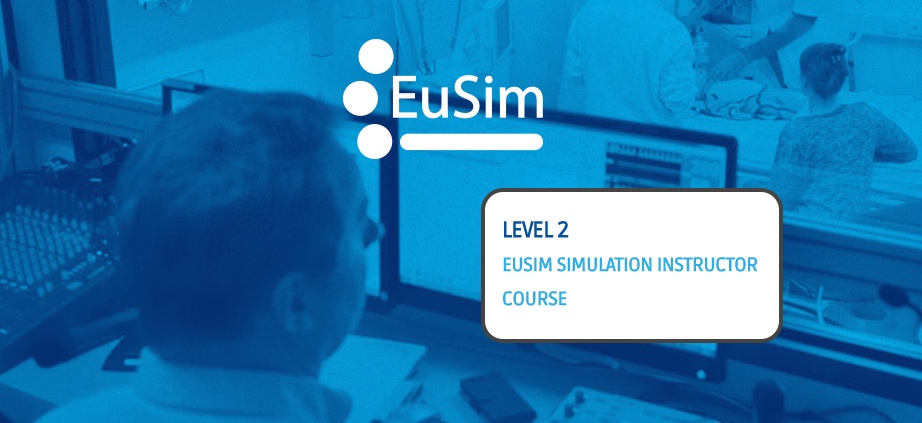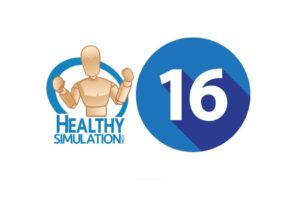EuSim Offers First Online Healthcare Simulation Instructor Course
Starting this November 6th, the EuSim group is offering their Level 2 healthcare simulation instructor course for the first time online! As the EuSim’s international and multi-professional faculty has extensive experience in faculty development with the area of simulations in healthcare, we wanted to make sure the global community is aware about this powerful learning opportunity. Those looking to improve their simulation educator experiences and cross over the threshold from beginning debriefing should consider enrolling in this course before space fills up!
About EuSim
EuSim was founded in 2004 by highly experienced medical simulation instructor trainers from three countries: Peter Dieckmann, Marcus Rall, Ian Curran, Chris Chin, Chris Sadler, Doris Østergaard, and Anne Lippert. Today EuSim is an international network with representatives from, for example, most European Countries, Latin America, and India. The current board comprises Peter Dieckmann (DK), Ron Brendel (NL), Kai Kranz (CH), Ralf Krage (D), Chris Sadler (UK), Patrik Nystøm (FI), Juan Manuel Fraga (Mexico).
Sponsored Content:
EuSim’s main goal is to spread healthcare simulation around the world in the interest of improving patient safety and quality of care. The team sees simulation in healthcare both as a tool for the analysis of work systems and processes and as an intervention tool for education and training.
They aim for a safe and friendly yet challenging working atmosphere, with courses designed based on needs analyses. They prefer to utilize a mix of instructional methods to make their courses stimulating, and the learning sustainable. Finally, the team drives conceptual thinking and practice on simulation, human factors, patient safety and pedagogical aspects both in-person and remotely.
About the Level 2 Online Instructor Course
This clinical simulation instructor course, the first to be digitized and provided in an online format, is based on sound learning goals, relevant topics and provides ample interactivity and reflection. The online parts build on your established direct practice. The spaced sessions planned allow you to try out things and to reflect on your tryouts in the online meetings.
Sponsored Content:
The course addresses experienced simulator instructors who want to develop their skill in running simulation courses that help participants reflect on their actions. During this online course participants will experience various learning formats including lectures, workshops, guided reflections, and exercises. The course also includes one hour of one to one coaching for each participant with a simulation expert within the international EuSim network. Small groups and modern software systems allow for intense contact between the course faculty and fellow course participants. The course language is English, requiring a level that allows taking part in discussions and reflections.
Who Should Attend: Experienced medical simulation faculty, who have established a simulation practice and who should already feel comfortable running scenarios and debriefing, with having led at least 35 simulation debriefings.
Dates: 5 Fridays from November 6th – December 4th, 1PM-4PM CET (UTC+2) – Online only!
Fees: €1,100
After completing the course, participants will be able to:
- Guide goal-oriented simulation sessions
- Use different approaches and tools to facilitate reflection
- Reflect on how own patterns (thinking, behaviour, habits, reaction and
understanding) can influence simulation training - Deal with challenging situations in simulation trainings
- Embed human factors/NTS/CRM in the simulation training
- Foster transfer of new insights into clinical practice
Learn More and Register for the Course on the EuSim Website!
Interested to learn more from the EuSim group immediately? Subscribe now and watch Dr. Dieckmann’s recorded HealthySimulation.com webinar entitled “How Many Do Well Often: Learning From Success in Mundane Situations“, where he discusses the theoretical foundations of this approach, LFS practices, as well as potentials and limitations!
Lance Baily, BA, EMT-B, is the Founder & CEO of HealthySimulation.com, which he started while serving as the Director of the Nevada System of Higher Education’s Clinical Simulation Center of Las Vegas back in 2010. Lance is also the Founder and acting Advisor to the Board of SimGHOSTS.org, the world’s only non-profit organization dedicated to supporting professionals operating healthcare simulation technologies. His co-edited Book: “Comprehensive Healthcare Simulation: Operations, Technology, and Innovative Practice” is cited as a key source for professional certification in the industry. Lance’s background also includes serving as a Simulation Technology Specialist for the LA Community College District, EMS fire fighting, Hollywood movie production, rescue diving, and global travel. He and his wife Abigail Baily, PhD live in Las Vegas, Nevada with their two amazing daughters.
Sponsored Content:


















